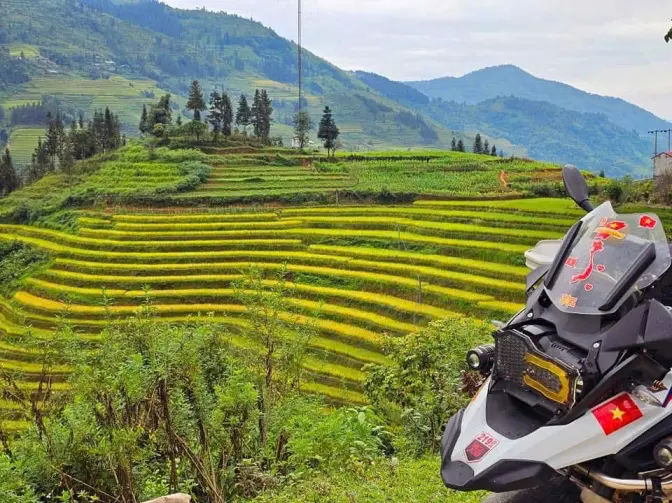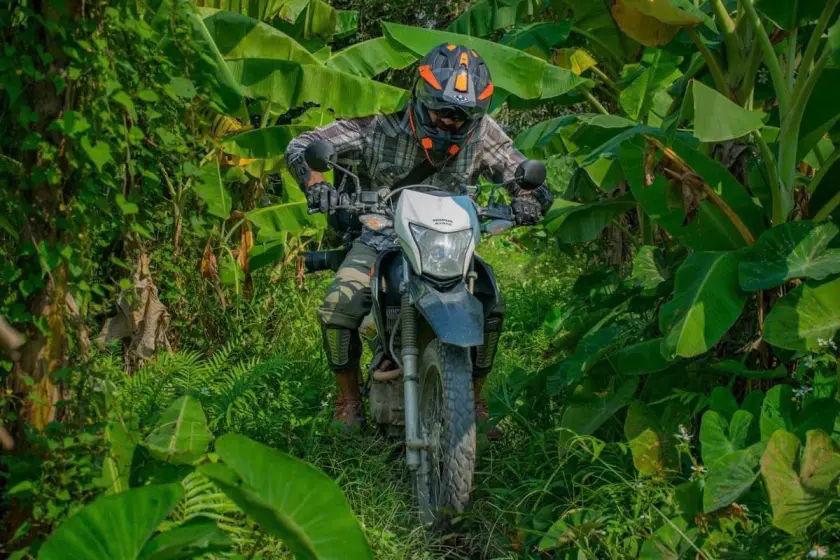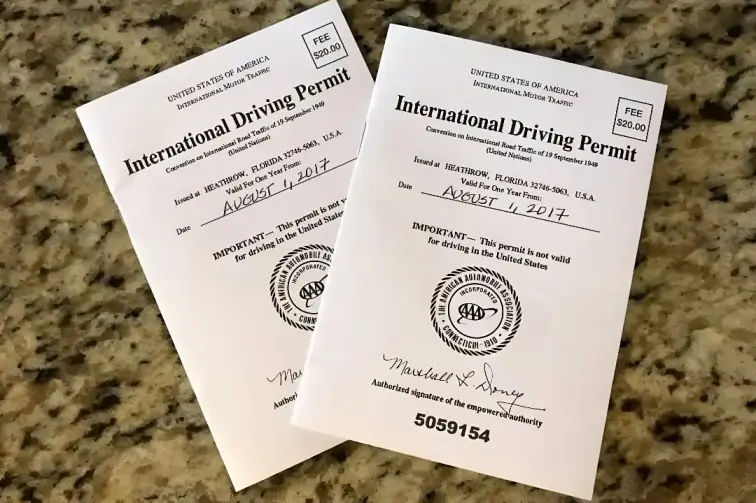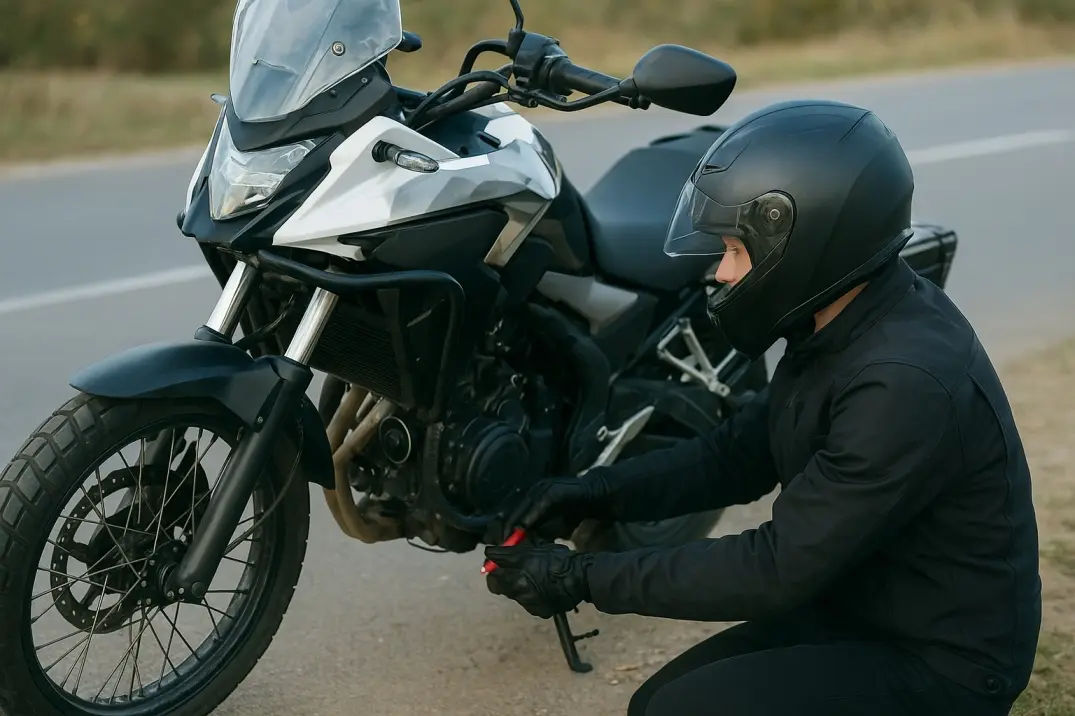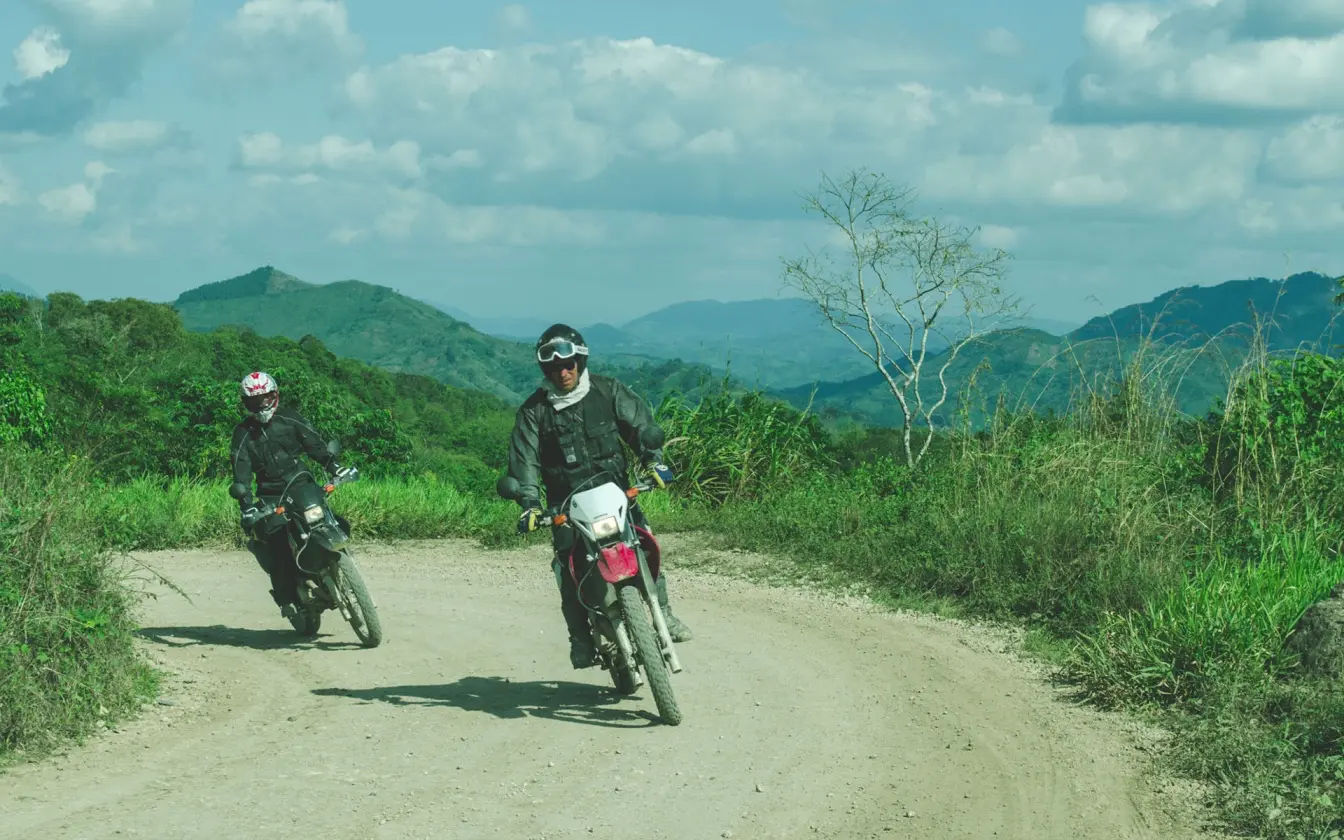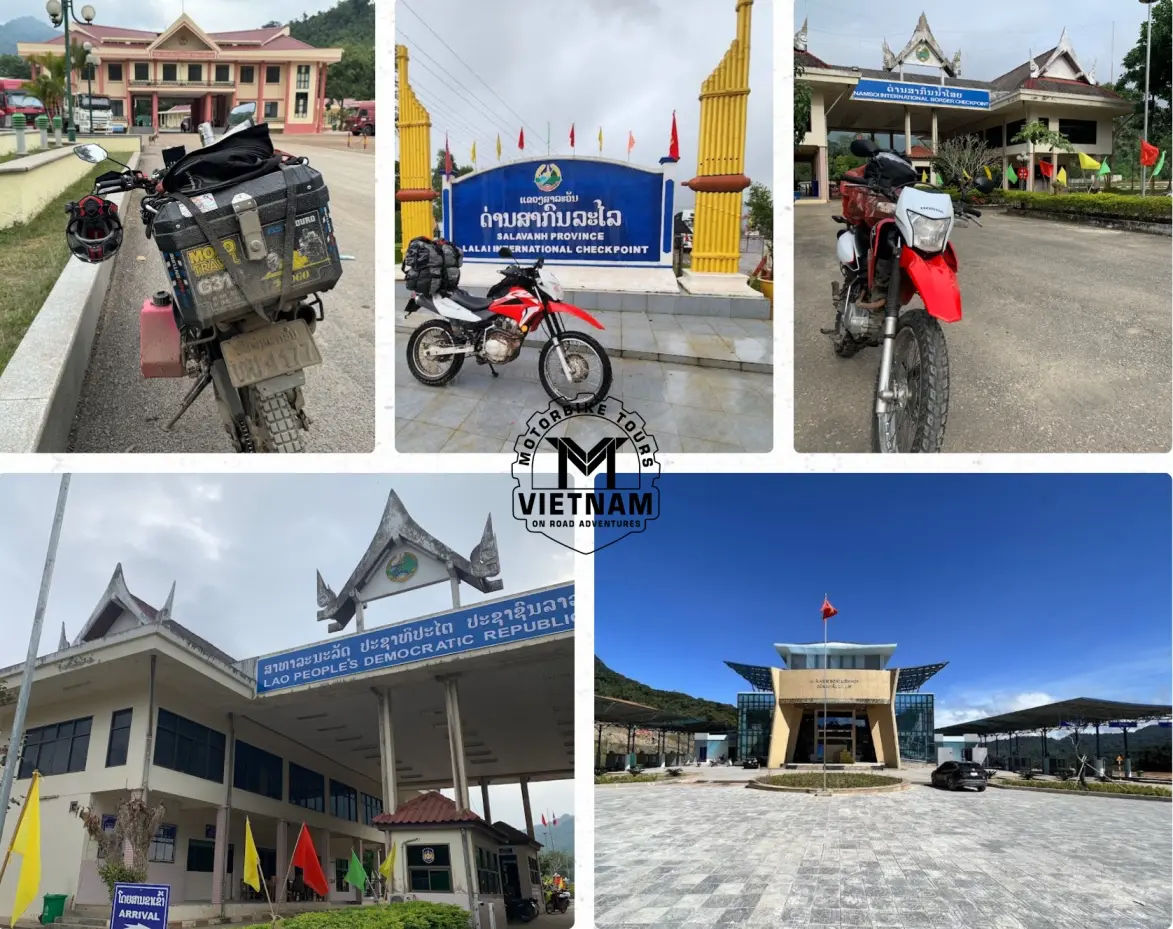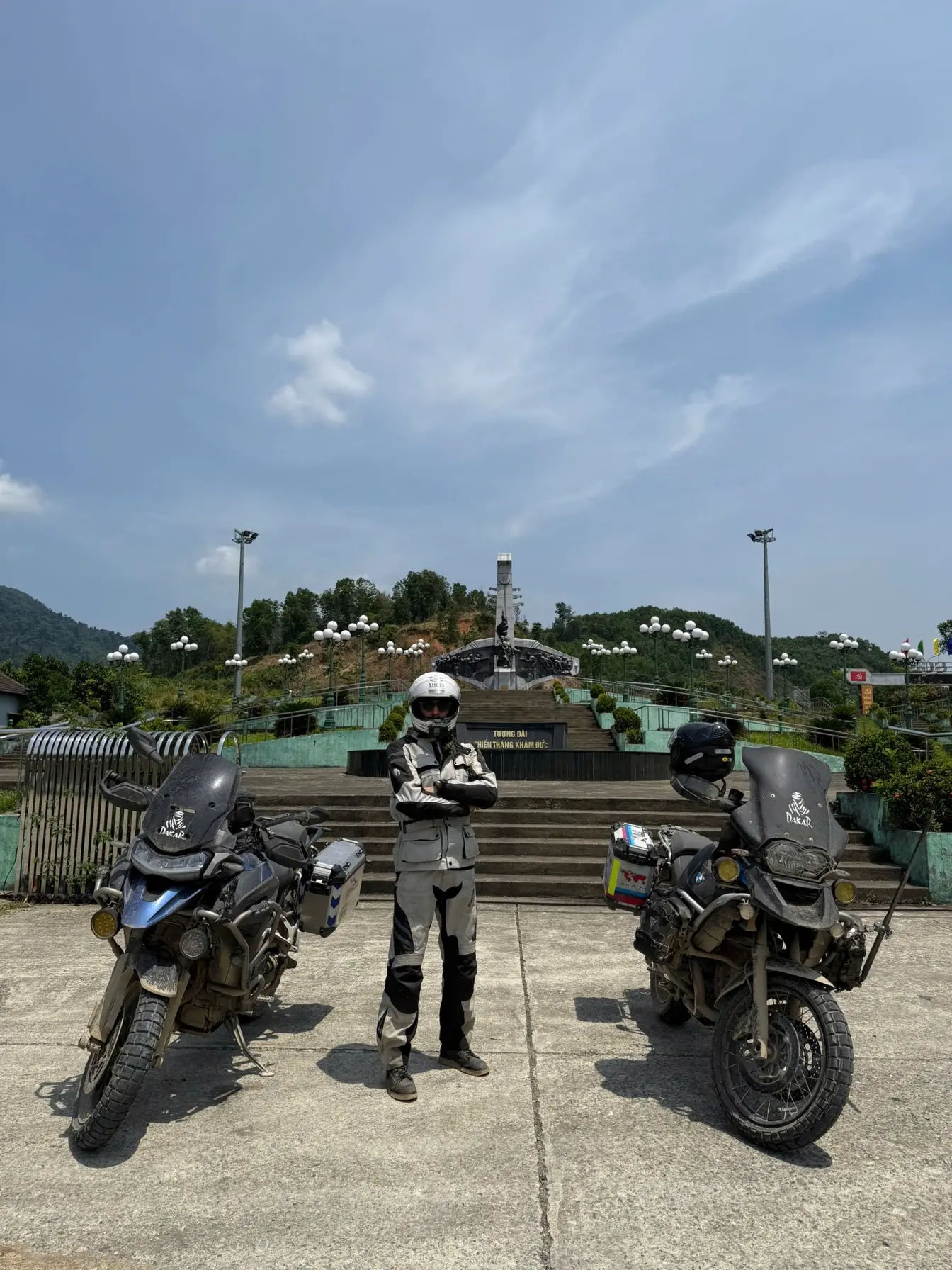
Renting a motorbike in Vietnam is fairly simple, whether you’re in Hanoi, Ho Chi Minh City (Saigon), Nha Trang, Sapa, Ha Giang, Hoi An, or Hue, but you’ll still need to meet the basic legal requirements. Most rental shops will ask for your passport, a local address such as your hotel, and a valid motorcycle license from your home country. For any motorbike over 50cc, you must carry an International Driving Permit issued under the 1968 Vienna Convention, as this is the only version recognized by Vietnamese authorities. A refundable deposit cash or card hold is standard across major destinations. These rules matter because Motorbike Rentals and the Law in Vietnam are strict: riding legally requires the correct license and a recognized IDP, and it protects you during police checks, insurance claims, and any incidents on the road.
- Check out Motorcycle Tours in Vietnam
Introduction to Motorbike Rental in Vietnam
The first time I rented a motorbike in Vietnam back in 2008, I was surprised by how quick the process was, and how different it felt from renting a vehicle back home in Europe.
Whether I was in Hanoi or later in Hoi An, every shop had its own way of doing things, but the basics stayed the same, even for now in 2026. They checked my passport, asked for my hotel address, and looked at my home-country license before handing over the keys (still not all of them check them carefully).
What stood out most was how informal the interaction seemed, yet how important the details were. Locals rent bikes daily without giving it much thought, but as a traveler, you need to know that each document ties directly to your safety and what happens if something goes wrong. I also learned that shops in smaller places like Sapa or Ha Giang can be more relaxed, but the rules don’t actually change. Understanding this early on made the whole experience smoother every time I moved to a new city.
| Document / Requirement | What It Is | Why It Matters |
|---|---|---|
| Passport & Valid Visa | Your main ID used for rental registration and verification. | Shops need it for security and documentation. |
| International Driving Permit (IDP) | 1968 Convention version required for motorbikes over 50cc. | Ensures you ride legally and remain covered during checks. |
| National Driving License | Your home-country motorcycle license. | Required to validate your IDP and insurance claims. |
| Rental Agreement | A short contract outlining responsibility and terms. | Protects you in case of disputes or damages. |
| Deposit (Cash or Card) | Refundable deposit required by most shops. | Covers minor damage or loss and confirms rental trust. |
| Travel Insurance | Coverage for accidents, injuries, and emergencies. | Essential for medical or damage claims. |
| Age & Experience | Some shops require minimum age or riding experience. | Helps ensure you can handle traffic safely. |
Why You Need Proper Documents for Renting a Motorbike?
After a few rentals across Vietnam, from busy Saigon streets to the quieter roads in Buon Ma Thuot and Kon Tum, i realized that having the right documents wasn’t just a formality. It felt more like a quiet rule everyone understood but didn’t always talk about.
The first time I was stopped at a routine police check near Nha Trang, my documents were what kept the situation calm. The officer looked at my passport copy, checked my International Driving Permit, and waved me on. Without them, the outcome would have been very different. Rental shops will often hand you a bike even if you lack proper paperwork, but the risk is entirely on you.
In places like Ha Giang, where the famous loop attracts new riders every day, I met travelers who had accidents and discovered too late that their insurance didn’t apply because their license wasn’t valid. These experiences taught me that the documents aren’t just for rental shops they’re for you, especially when something unexpected happens on the road.
Essential Documents Required for Motorbike Rental
When I first started renting motorbikes in Vietnam, I didn’t realize how much smoother everything becomes when you carry the right documents. Over time, I learned that rental shops check paperwork not because they want to be difficult, but because it protects both sides if something unexpected happens. The basic documents are always the same: passport, visa, national license, and an International Driving Permit.
Even small rental shops want to know who you are and that you can legally ride. A simple conversation at the counter often turns into a quick inspection of your papers, followed by a short explanation of the bike’s condition. It may feel routine after a few rentals, but having everything ready saves time and avoids awkward moments when the shop hesitates to trust you with their motorbike.
- Check out how to get Vietnamese driving license
Passport and Valid Visa
If there’s one document I’ve learned never to leave behind, it’s my passport. Almost every rental shop asks for it, sometimes wanting to hold the original and sometimes accepting a copy. At first, I was uncomfortable handing my passport over, so I started carrying a high-quality photocopy with my visa page included. Most shops accepted it without issues, especially when I explained that I preferred keeping the original with me.
The visa matters because it confirms that you’re staying legally, and it reassures the shop you won’t disappear with their bike. I’ve noticed that when I provide both passport and visa information confidently, the rental process becomes quicker, and they tend to trust me more with better-condition bikes.
- Now you may want to know who needs a visa to visit Vietnam in 2026
International Driving Permit (IDP)
The IDP is the document many travelers underestimate, including me when I rented my first bike. I assumed my home-country license was enough, until I learned how insurance and police checks work in Vietnam. The IDP fills the gap between your national license and the local legal requirements. When you show it to a rental shop, they often nod with relief, because it tells them you’re serious about riding legally.
I once met a traveler who didn’t have an IDP and discovered during an accident claim that his insurance wouldn’t cover anything. That story stayed with me, and since then, I’ve kept my IDP tucked into the same pouch as my passport copy. It has saved me from long explanations during roadside stops and given me peace of mind on every ride.
National Driving License
Your national driving license is the foundation of everything. Without it, the IDP means nothing, and rental shops become much more cautious. I remember once forgetting my license in my hotel room and trying to rent a bike anyway. The shop owner asked a few questions, and when I couldn’t produce the card, he simply smiled and said the insurance wouldn’t apply. That moment reminded me how important the original license is. It shows that you are trained to ride and that your IDP is valid. Whenever I hand over my license, I can see the shop staff quickly checking the motorcycle category, making sure I’m approved to ride the engine size I’m requesting.
Rental Agreement and Deposit
The rental agreement might look like a simple form, but it’s more important than most travelers realize. It outlines what happens if the bike is damaged, how the deposit works, and what responsibilities both sides have. I’ve seen everything from handwritten notes to printed contracts, and each one mattered when a small scratch or missing helmet came into question at return time. The deposit also varies—sometimes cash, sometimes a card hold. I prefer card holds because they’re easier to track, and I don’t have to carry extra cash. Reading the agreement slowly and asking questions has saved me from paying for previous scratches or worn-out tires that weren’t my fault. It’s one step that’s always worth slowing down for.
Additional Requirements for Foreign Travelers
Foreign travelers often face an extra layer of requirements simply because they’re not familiar with local regulations. Over time, I’ve realized these added steps are less about bureaucracy and more about ensuring you understand what you’re taking on. Rental shops sometimes ask for a local contact number, a hotel address, or even an emergency contact. These details help them feel secure, especially if you plan to take the bike for several days.
I’ve noticed that when I provide clear information and explain my travel plans, the whole process becomes friendlier. Many shops also ask whether you have insurance that covers motorbike accidents, and the conversation that follows often gives you a better understanding of the risks on the road.
Travel Insurance and Health Coverage
Before riding in Vietnam, I never paid much attention to the fine print of my travel insurance.
That changed after seeing a rider struggle with hospital bills after a minor accident because their insurance didn’t cover motorbikes. Since then, I always double-check whether my policy includes motorbike riding and medical evacuation.
It feels like an extra step, but it makes a huge difference when you’re far from familiar healthcare systems. I once visited a clinic after a small fall, and the staff immediately asked for insurance details before treating me. That experience reminded me how fast costs can add up. Having the right coverage means you can ride without worrying about what might happen if you take a wrong turn or hit loose gravel.
Motorbike Rental Age and Experience Restrictions
Different shops have different rules (I feel like Hanoi rental shops do not care much abut the customer ages) when it comes to age and experience, and I’ve learned that these rules are shaped by the owner’s past experiences with customers. Some shops want renters to be at least 18, while others prefer people who already have a few years of riding under their belt.
When I first rented a bike, I was honest about my experience level, and the owner gave me a short lesson on the bike’s controls before letting me leave. That extra five minutes helped more than I expected. Many shops also ask whether you’ve ridden in Southeast Asia before, mostly because the traffic feels different compared to quieter countries. The more open you are, the more guidance they offer, and it usually leads to a safer experience.
Tips for a Safe and Legal Motorbike Rental Experience
Riding in Vietnam becomes much easier once you understand how to approach the entire rental process.
Over the years, I’ve found that taking an extra few minutes at the shop can prevent hours of stress later. I always inspect the bike carefully, taking photos of every scratch and asking about anything that looks worn. It may feel unnecessary, but it has saved me from disputes at return time.
I also make sure the brakes feel responsive, the lights work, and the tires aren’t too smooth. Carrying the paperwork in a small, waterproof pouch has also helped during sudden rain or roadside checks. Beyond that, learning the basic traffic patterns—like understanding how riders merge and how intersections flow makes each ride more predictable and much safer.
Common Mistakes to Avoid When Renting a Motorbike
After many trips, I’ve seen the same mistakes repeated by travelers, and I’ve made a few myself. One common mistake is choosing the cheapest bike available without checking its condition. Another is accepting a rental without asking about the insurance policy or reading the agreement carefully.
I once rushed through the process and didn’t notice a cracked mirror, which later became a small argument when returning the bike. Another mistake is not testing the brakes before leaving, which can be risky on busy roads. Some travelers also forget to check whether their license and IDP are valid for the bike’s engine size. Avoiding these mistakes doesn’t take much time, but it makes your rental experience far safer and far less stressful.
FAQs: What are the requirements to rent a motorbike?
What do you need to rent a motorcycle in Vietnam?
To rent a motorcycle in Vietnam, you need your passport, a valid motorcycle license from your home country, and an International Driving Permit (IDP) issued under the 1968 Vienna Convention.
Most rental shops also ask for a deposit, usually in cash or as a card hold. Some motorbikes have minimum age requirements. Make sure your documents are correct, especially for bikes over 50cc. Riding without a valid license or IDP can leave you uninsured in case of an accident
Can I drive in Vietnam with an UK driving license?
Your UK license alone is not enough. You can drive in Vietnam with a UK driving license only if you also carry a UK-issued International Driving Permit (IDP) that follows the 1968 Vienna Convention.
Since early 2019, both documents are required for legally riding a motorbike or driving a car in Vietnam.
If you plan to stay long term, you can apply for a Vietnamese driving licence once you have a diplomatic ID, temporary residence card (TRC), or residence card valid for at least three months, along with your UK license or UK-issued IDP. Applications are done at your local Department of Public Works and Transportation.
What license do I need to ride a motorbike in Vietnam?
To ride a motorbike legally in Vietnam, you need a Vietnamese driver’s license or an International Driving Permit (IDP). The IDP only works as a translation of your home-country license, so you must show both documents.
If you plan to stay in Vietnam more than three months, convert your license or get a Vietnamese one. Many insurance companies now require proper local licensing for coverage. This keeps sentences under 20 words, improves readability, and stays SEO and AI-friendly.
Are tourists allowed to drive in Vietnam?
Yes. Tourists with visas under three months can drive in Vietnam. They must have a valid home country license and an International Driving Permit (IDP) issued under the 1968 Vienna Convention.
Conclusion: Be Prepared Before You Ride
Being prepared makes renting a motorbike in Vietnam far smoother and much safer. Having the right legal documents and understanding local rules can save you trouble. Knowing what rental shops expect also helps during police checks, insurance claims, or unexpected incidents. Take a moment to review your passport details, license, and IDP before you rent. A few minutes of preparation helps you ride with confidence and focus on enjoying the journey ahead.
About the author
Hamid is a travel writer and long-term Southeast Asia resident who focuses on practical guides for navigating Vietnam’s roads, rentals, and real-world travel logistics. He combines his own experience with careful research to create content travelers can trust, especially on legal requirements, safety rules, and culturally grounded advice. His work aims to simplify complicated topics so readers can explore with confidence and accurate information.



